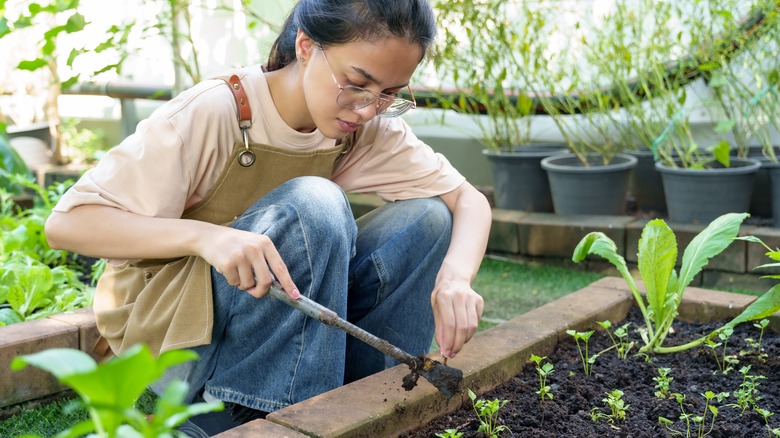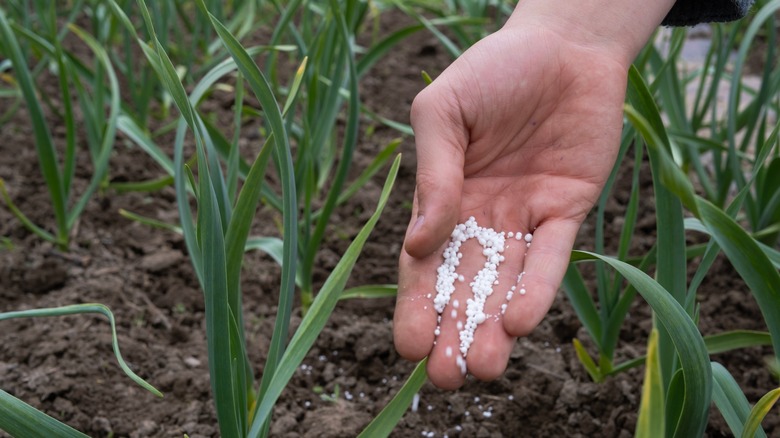Is There A Fertilizer That's Safe To Use In Hot Weather?
Fertilizing your garden in hot weather is not an ideal practice, as it may damage your plants. Fortunately, there are relatively safe options that are available if you feel the need to fertilize in the heat. The safest choices include slow-release granular fertilizers and organic fertilizers, such as fish emulsion. Though more accurately classified as organic soil amendments than fertilizers, compost, compost tea, worm castings, cottonseed meal, and blood meal can be used in hot weather. Alfalfa meal is also an organic fertilizer that'll do wonders for your garden soil.
Products labeled "plant food" are also a possibility as they immediately provide nutrients to plants, but take care not to overdo plant-food application, as doing so can cause damage. Determine how much fertilizer you really need in your garden. Consider the cautionary step of cutting the label-recommended amount of fertilizer in half when applying in the heat. Do follow the remaining label instructions.
Reduce the danger of fertilizer damage in the heat
To avoid the fertilizer burn that can occur when you add fertilizer to plants during a hot spell, wait till temperatures cool instead of fertilizing in extreme heat waves, and avoid adding fertilizer when plants are drought-stressed. Be sure to fertilize during the coolest part of the day, morning or evening. Side-dressing fertilizer is a recommended summer practice in which the fertilizer is placed around the perimeter of the plant or in bands next to rows of plants. If the soil is extremely dry, water before fertilizing. Water plants immediately after fertilizing or fertilize when rain is in the forecast so nutrients dissolve and are available to plant roots.
Hot temperatures may be a sign from the weather you shouldn't fertilize, but if you determine your garden or individual plants would benefit from fertilizer, precautionary steps with relatively safe options, well-timed application, and irrigation afterward comprise your best bet for avoiding harm to your plants.

